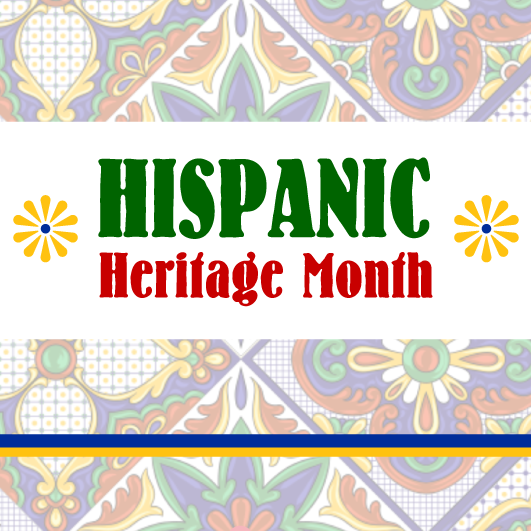- Stillwater Public Schools
- Cultural Observances, Holidays & Events
Hispanic Heritage Month
 Hispanic Heritage Month, also known as National Hispanic Heritage Month, is an annual celebration in the United States that takes place from September 15 to October 15. It is a time to recognize and celebrate the rich cultural contributions and history of Hispanic and Latino Americans, as well as the heritage of individuals and communities with roots in Spanish-speaking countries.
Hispanic Heritage Month, also known as National Hispanic Heritage Month, is an annual celebration in the United States that takes place from September 15 to October 15. It is a time to recognize and celebrate the rich cultural contributions and history of Hispanic and Latino Americans, as well as the heritage of individuals and communities with roots in Spanish-speaking countries.
Here are some key points about Hispanic Heritage Month:
-
Dates: Hispanic Heritage Month starts on September 15 because it coincides with the independence anniversaries of several Latin American countries, including Costa Rica, El Salvador, Guatemala, Honduras, and Nicaragua, which declared their independence from Spain on September 15, 1821. Mexico's Independence Day is also on September 16, and Chile's is on September 18. The celebration continues until October 15.
-
Recognition: The observance of Hispanic Heritage Month began in 1968 as a week-long celebration under President Lyndon B. Johnson. It was later expanded to a month-long celebration under President Ronald Reagan in 1988.
-
Diversity: Hispanic and Latino Americans come from a wide range of countries, including Mexico, Puerto Rico, Cuba, the Dominican Republic, Central and South America, and Spain. This diversity contributes to a rich tapestry of cultures, languages, traditions, and histories within the Hispanic and Latino community.
-
Celebrations: During Hispanic Heritage Month, various events and activities take place across the country to celebrate Hispanic and Latino culture. These can include parades, cultural festivals, art exhibitions, music performances, food tastings, lectures, and educational programs.
-
Education: Schools, colleges, and universities often incorporate Hispanic Heritage Month into their curricula, raising awareness of the contributions of Hispanic and Latino Americans to American society, history, and culture. This educational component helps foster understanding and appreciation.
-
Cultural Contributions: Hispanic and Latino Americans have made significant contributions to various fields, including music, literature, art, science, politics, sports, and business. Notable figures such as César Chávez, Sonia Sotomayor, Roberto Clemente, Frida Kahlo, Gabriel García Márquez, and many others have left a lasting impact.
-
Language: Spanish is one of the most widely spoken languages in the world, and it plays a significant role in Hispanic and Latino culture. During Hispanic Heritage Month, efforts are made to promote language learning and celebrate the linguistic diversity within the Hispanic and Latino community.
Hispanic Heritage Month is a time to honor the heritage and achievements of Hispanic and Latino Americans while fostering understanding and appreciation of their contributions to the United States and the world. It is a celebration of diversity and a reminder of the importance of cultural heritage in shaping the nation's identity.
Learn more at the Library of Congress's Hispanic Heritage Month site.

